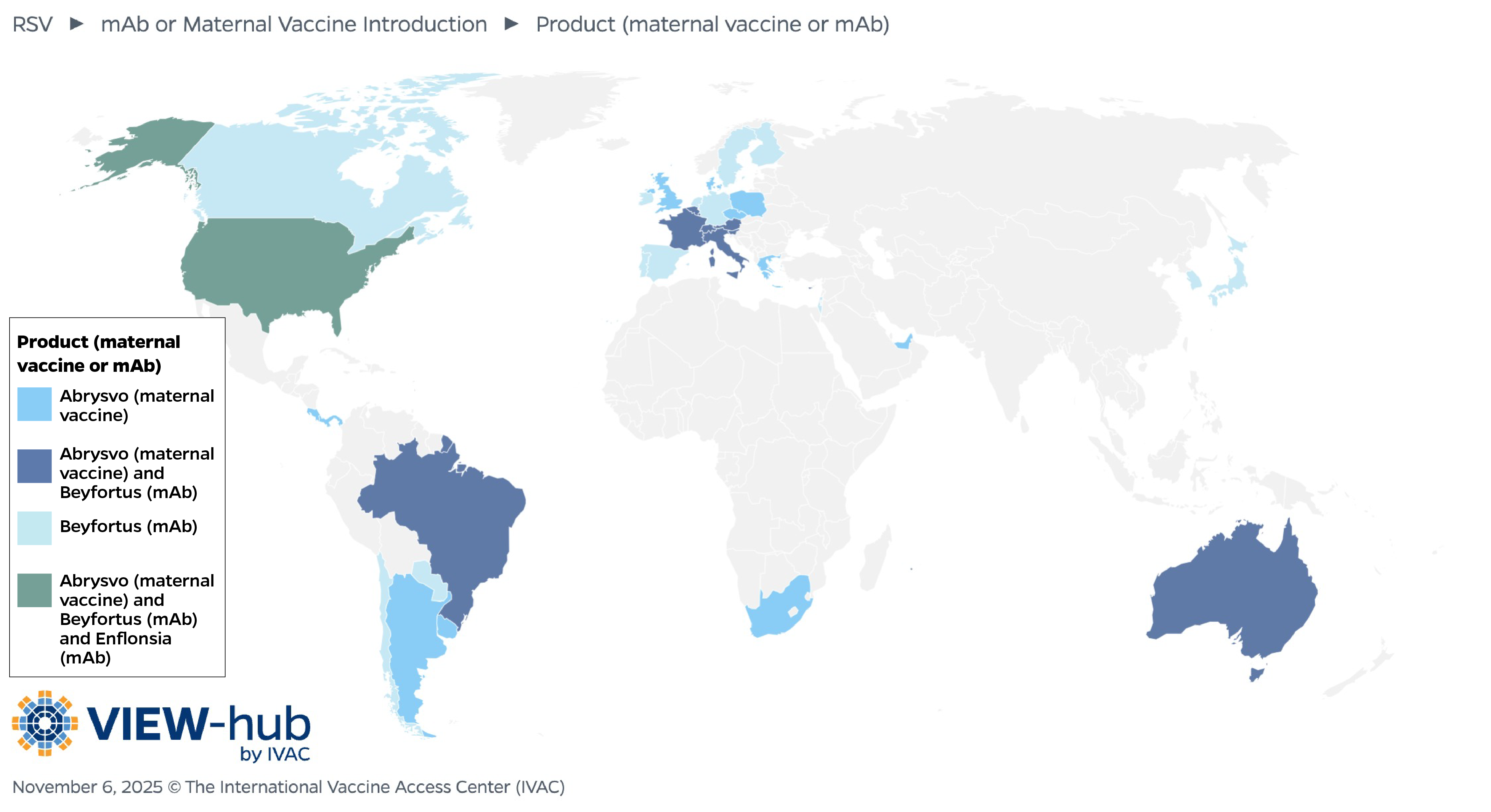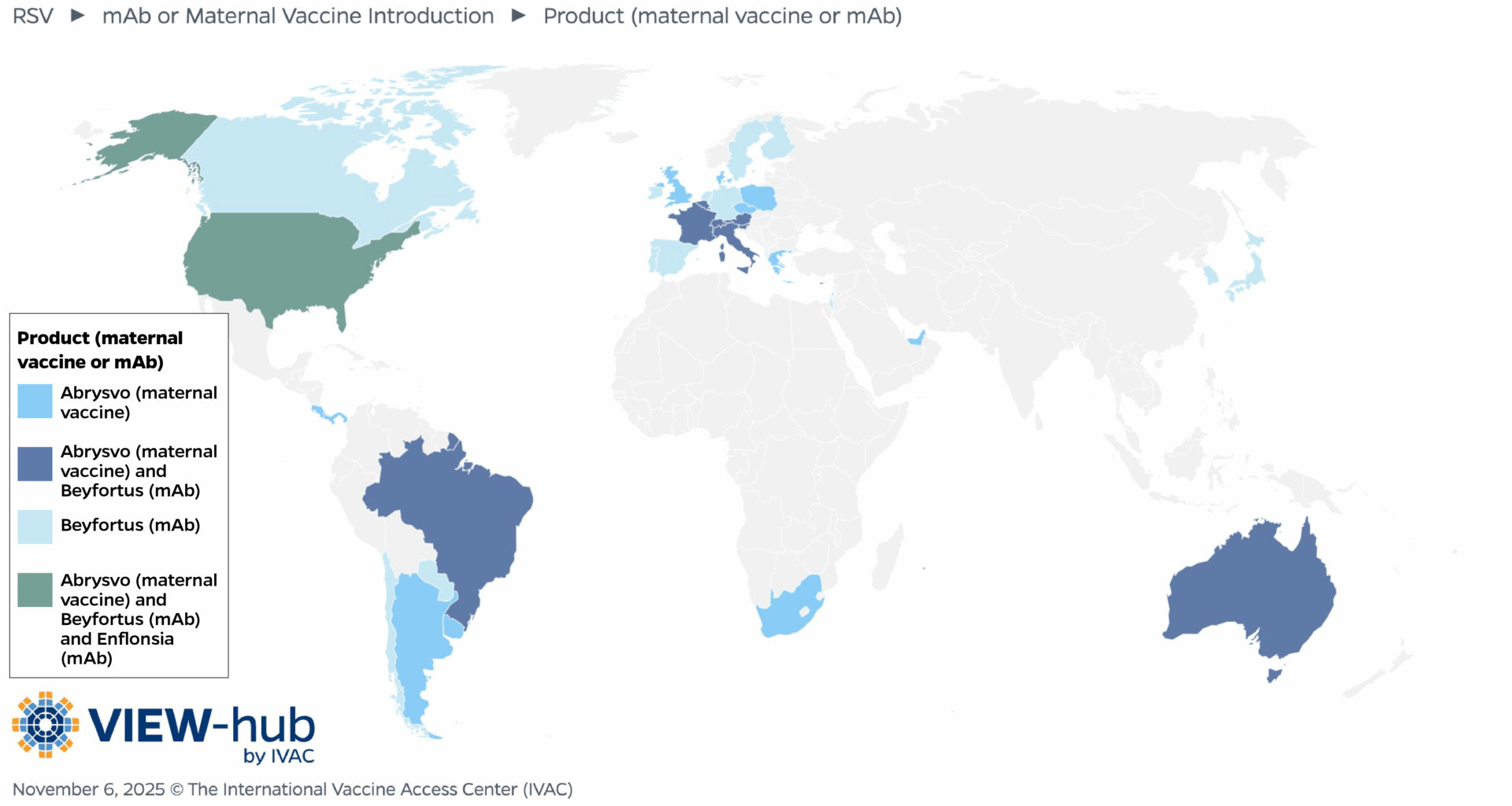November 12 marks World Pneumonia Day, a time to recognize progress in the fight against one of the leading killers of young children around the world. In 2023, pneumonia was responsible for more than 600,000 deaths among children under 5 years. Despite this grim statistic, substantial progress has been made toward preventing disease among this vulnerable population, largely through expanded use of pneumococcal conjugate vaccines (PCVs) and the introduction of products to prevent respiratory syncytial virus (RSV) disease.
Following WHO prequalification of a maternal vaccine for RSV and the publication of a position paper outlining recommendations for RSV immunization, 35 countries have introduced either maternal RSV vaccination, monoclonal antibodies (mAbs), or both. These prevention products are critical to reduce the burden of RSV, a significant cause of pneumonia among infants and young children and for which a specific treatment is not yet available. We expect that more and more countries will continue to introduce RSV prevention products, especially following Gavi’s plans to establish an RSV maternal vaccine program for Gavi-eligible countries.
Immunization researchers, advocates, and decision-makers can access and visualize data on country-level introduction and product use in a new module on VIEW-hub, an open-access tool developed by the International Vaccine Access Center (IVAC) at the Johns Hopkins Bloomberg School of Public Health. Available data include which countries have made mAbs or the maternal vaccine available, either through their national immunization program or the private market, and which countries are planning to do so. Data are also available on product use, including the timing of maternal vaccination in relation to the RSV transmission season, what mAb products are available, and the target population for mAbs. A new VIEW-hub Topic Page also provides an overview of RSV prevention products and their benefits.

VIEW-hub also provides data on the introduction, use, access, and coverage of PCVs, another important tool in the fight against pneumonia. Immunization researchers, advocates, and policymakers can use these data to bolster efforts to promote vaccine access and uptake and to inform vaccination program decisions.

